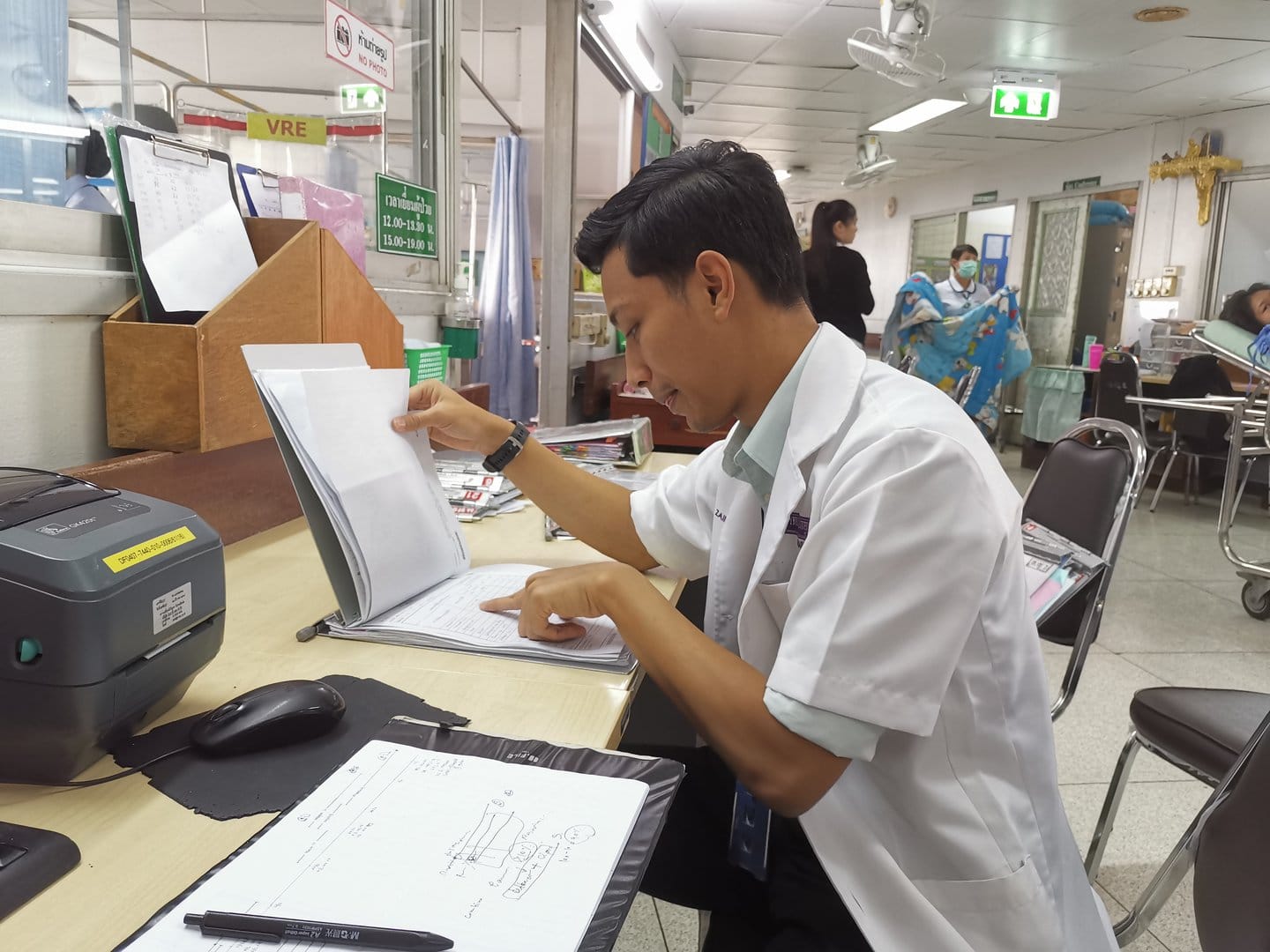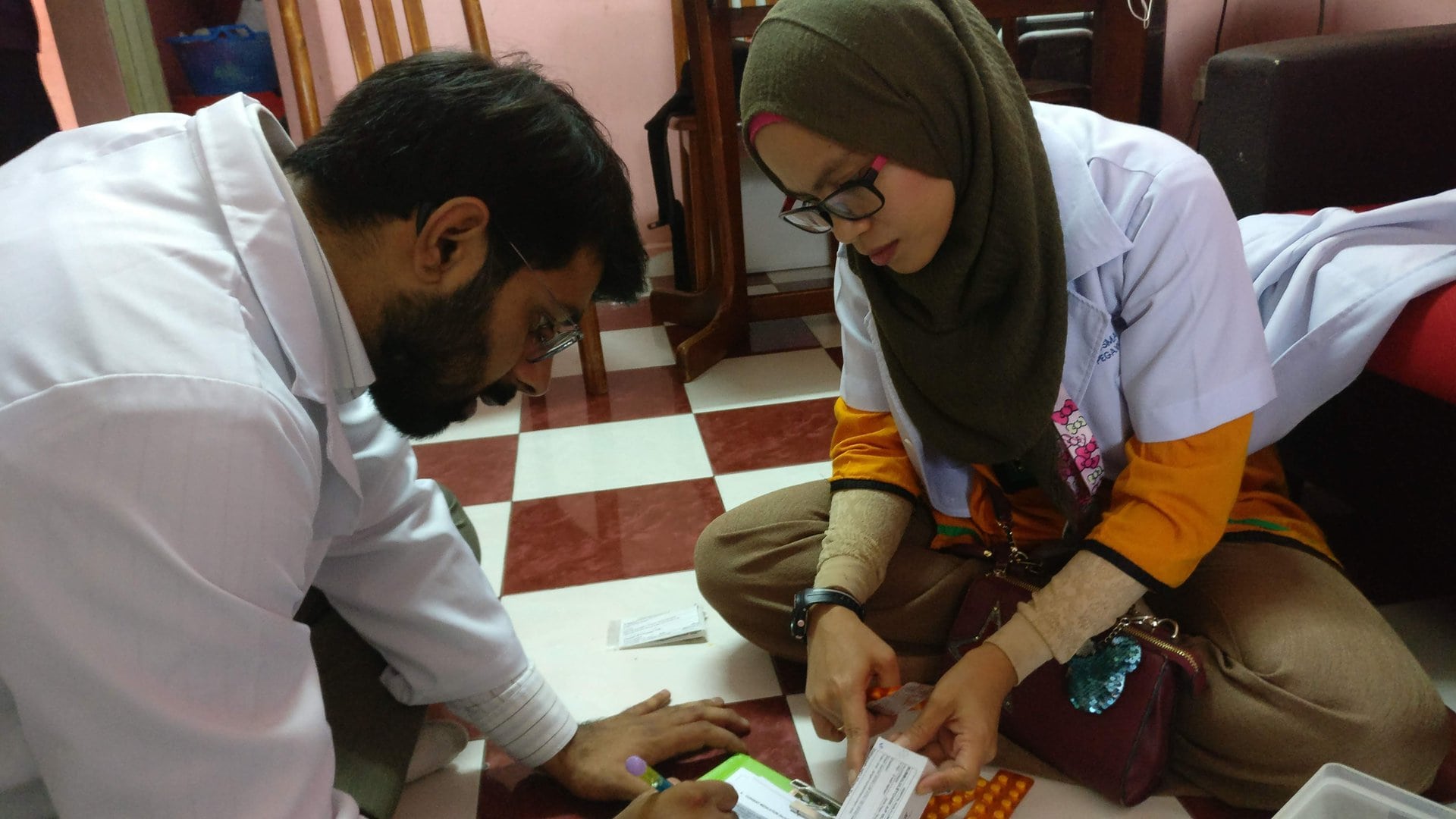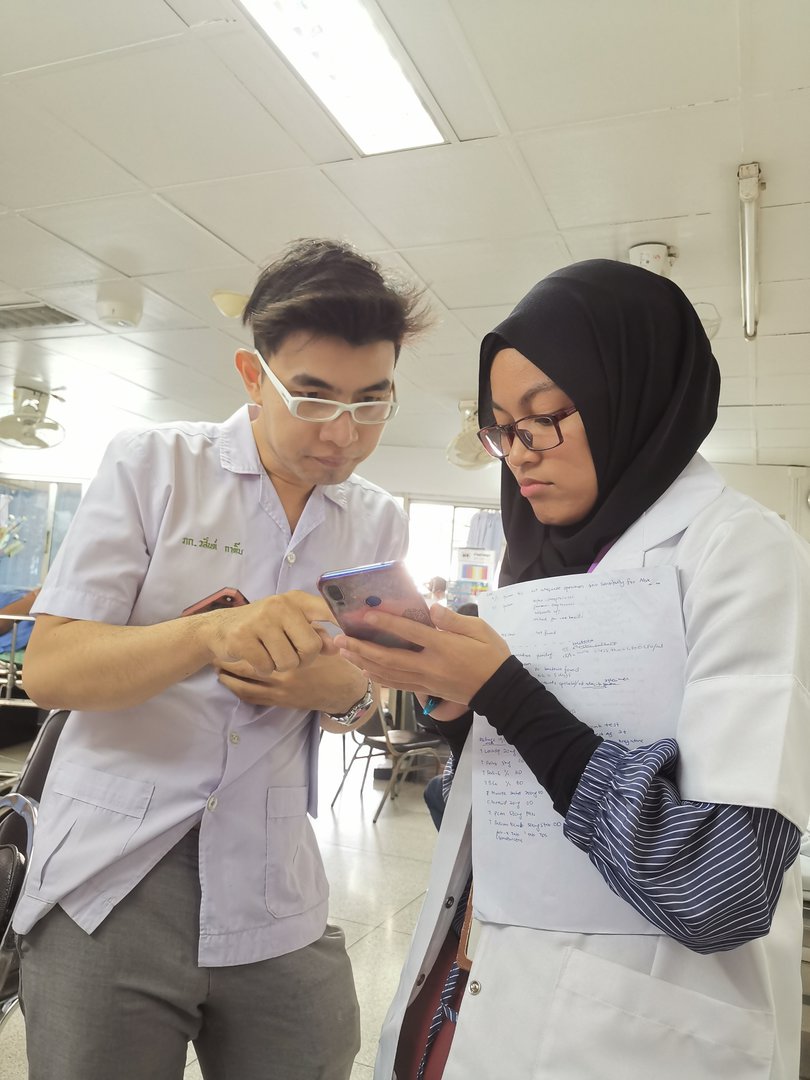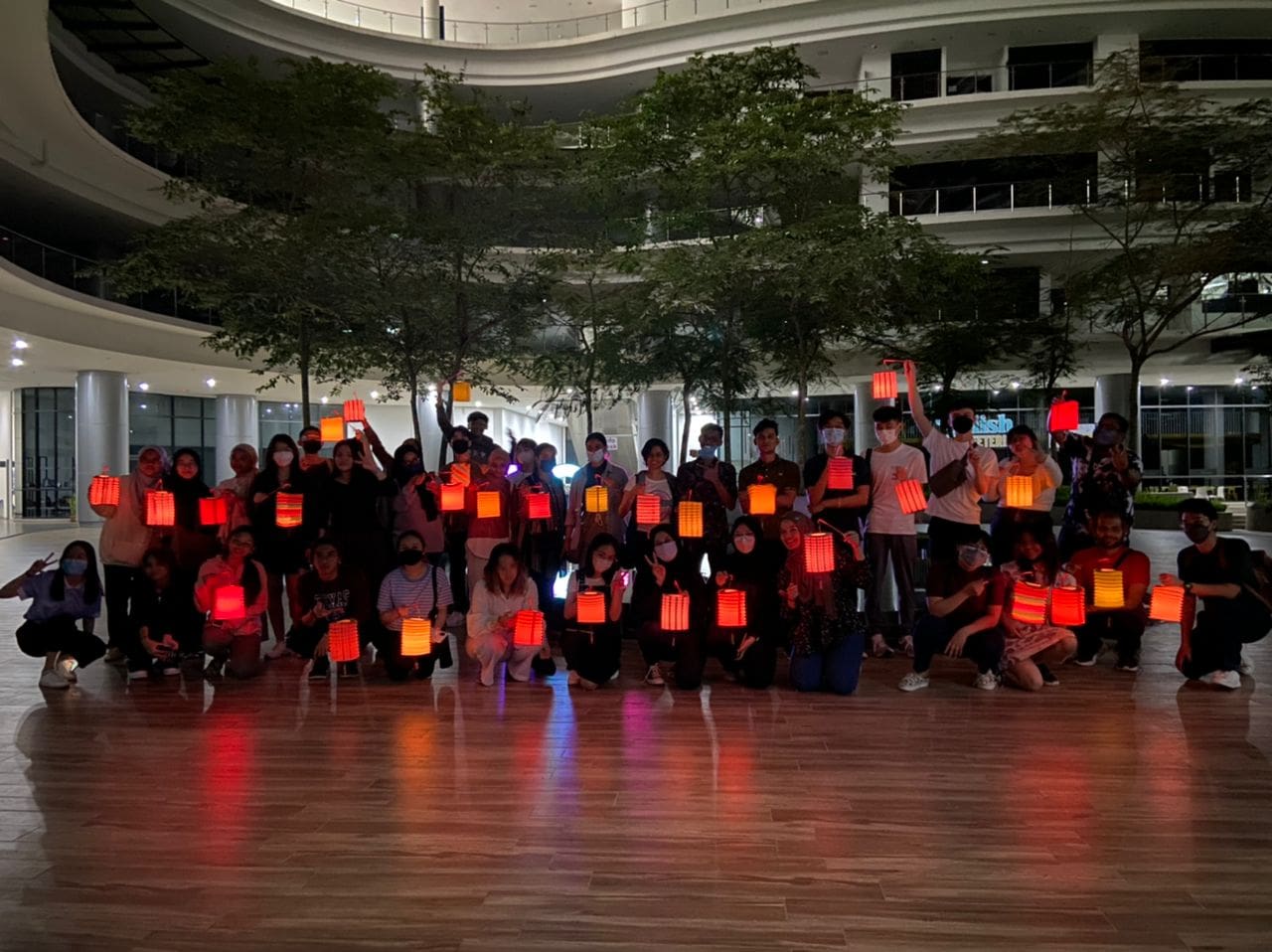Upskilling to Meet the Demand for Expanded-Role Pharmacists
Khalid bin Hamid (far right) with other student participants during the Interprofessional Summer Course organised by the Gadjah Mada University
Upskilling to Meet the Demand for Expanded-Role Pharmacists
The pharmacist as one of the core contributors in the healthcare team is needed more than ever to enable the delivery of all-inclusive care for today’s society. With endless access to information, both individuals and the healthcare team alike places merit on personalisation and completeness of given care. To be of value, it is worthwhile for the individual pharmacist to upskill and equip themselves with competencies to assume expanded roles needed in the current healthcare landscape. One such competency in the field of clinical pharmacy and pharmacotherapeutics – the discipline related to the optimisation of drug therapy for each specific disease states. The clinical pharmacist adds value to holistic care by advising the prescriber on individualised pharmacotherapy, dosing adjustments, medication use in special populations and monitoring of drug concentrations and safety in use.

Zainol Johari, a second-year Doctor of Pharmacy student, completes case clerking during clerkship in Chiang Mai University Teaching Hospital, Thailand as part of the student outbound programme with partner institutions.
As such, there is an increase in the call for the healthcare system to recognise qualified clinical pharmacists in the US and Malaysia [Ref. 1]. Expanding patient-focused services such as ambulatory adherence clinics and smoking cessation clinics among others to the community setting which typically deals with minor ailments, have been proposed [Ref. 2]. Additionally, pursuing post-graduate qualifications have been advocated to equip graduates with the increasing need for specialisation in clinical pharmacy and therapeutics [Ref. 3]. One such programme is the Doctor of Pharmacy programme offered by the University of Cyberjaya.
The Doctor of Pharmacy programme is a 2.5-year postgraduate course dedicated to producing competent clinical pharmacy graduates with specialised research and internship in a dedicated field of interest. This programme is cost-comparable to competitor programmes in the region and is open to international applicants meeting the entry requirement of possessing an entry-level pharmacy degree equivalent to a 4-year Bachelor of Pharmacy program recognised by the University. The programme features guidance from a strong local faculty of experienced and forward-minded academicians accomplished in pharmacy and academic research.
The Doctor of Pharmacy programme and the Master’s in Clinical Pharmacy programme offered by the University of Cyberjaya have enjoyed a good mix of local and international graduates for the past several years. Indeed, Cyberjaya is a self-sustaining city that provides a good ecosystem for global students with its plentiful housing, availability of e-hailing services and rapid transits and recreational facilities. The serenity of the city is preserved as it is located 30 minutes away from the bustling capital city, Kuala Lumpur. It is also 15 minutes away from the administrative capital, Putrajaya.
Graduates and current candidates in the programme have benefitted from exposure to outbound programmes at the University’s partner institutions such as Universitas Gadjah Mada Indonesia and Chiang Mai University Thailand.

Khalid bin Hamid (left) during home medication review visit accompanied by Puan Rosmaliah Alias, a pharmacist in the Ministry of Health.
“Having had the opportunity to participate in the interprofessional summer course on emergency and trauma was a very valuable experience for me. Besides networking with other participants, I had a glimpse of the rural community care in Jogjakarta that gave me the insight to compare the health systems in Indonesia, Malaysia and my home state of Kashmir”, said Khalid Hamid, final year Doctor of Pharmacy student.
“Numerous opportunities of mentoring junior students are what I value throughout this program as it provides the first-hand experience to the academic field, which is what I would like to pursue after graduation”, said Zainol Johari, second-year Doctor of Pharmacy student. He added, “Facilitating the undergraduate small-group discussions challenged me to polish my leadership and communication skills at the same time. This has proved useful during my studies where clear and orderly communication with the patients and the healthcare team is a must”.

Wafi Mardhiah Azmi (right), seeking guidance from Dr Wasan Katip, resident pharmacist of Chiang Mai University Teaching Hospital, Thailand during clerkship as part of the student outbound programme with partner institutions.
Graduates and current students of the programme are required to deliver many presentations during their intensive internships in Ministry of Health hospitals. “I remember imagining presenting in front of the practising pharmacists to be daunting, but the experience was otherwise. I approach each presentation with my best effort and an open mind to both positive and less than positive feedback. Our preceptors in the Ministry hospitals have been serious and supportive of our progress. A personal proud moment for me was when I gave a talk on my experience during the nuclear pharmacy attachment at the National Cancer Institute during the postgraduate seminar organised by the pharmacy postgraduate society”, said Ibrahim Hazeeb Opeyemi, final year Doctor of Pharmacy student.
In this digital age, patients are more health literate and information savvy. Therefore, being both informative and having the art of people management, becomes as important as simply being knowledge proficient. In the recent review of the curriculum, additional focus has been emphasised on professionalism in practice and intensive experiential learning. The result is a wholesome curriculum that produces graduates of greater value to the employer that will be able to chart new paths, manage new patient-oriented services or establish medication review programmes.
Pharmacist upskilling bring immediate and long-term benefits to the healthcare system. Having highly qualified clinical pharmacist to optimise medication therapy management improves acute care in a hospital setting. This, in return, improves patient’s morale and likeliness to follow prescribed treatment in the long-term. Indeed, the value of having upskilled pharmacist benefits patient care indefinitely.
References:
- Lebowitz L, Eddington ND. Trends in the Pharmacist Workforce and Pharmacy Education American Journal of Pharmaceutical Education 2019; 83 (1)
- Brown DL. A looming joblessness crisis for new pharmacy graduates and the implications it holds for the academy. Am J Pharm Educ. 2013;77(5): Article 90.
- Knapp KK, Schommer JC. Finding a path through times of change. Am J Pharm Educ. 2013;77(5): Article 9




